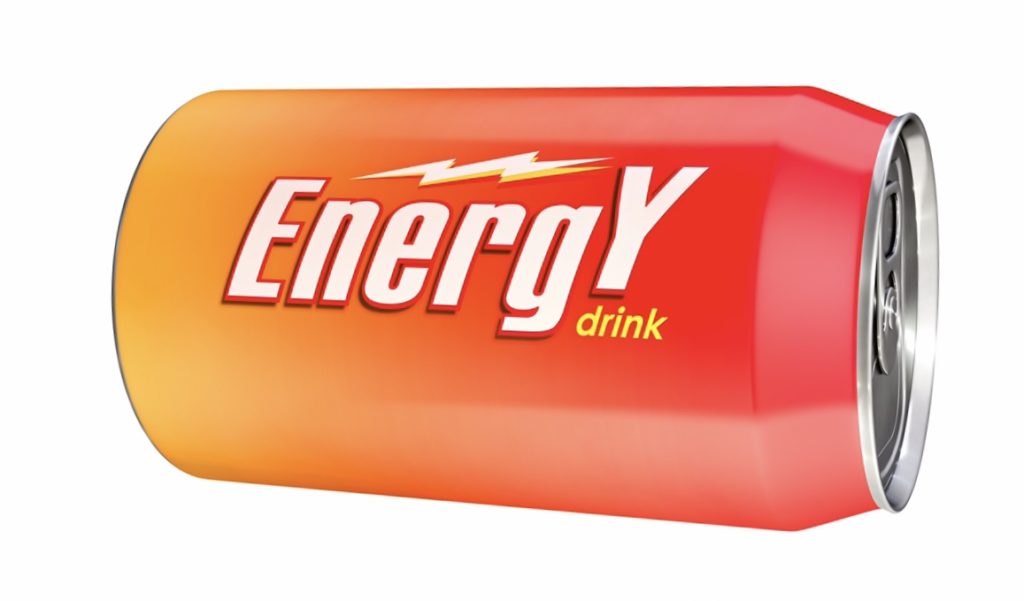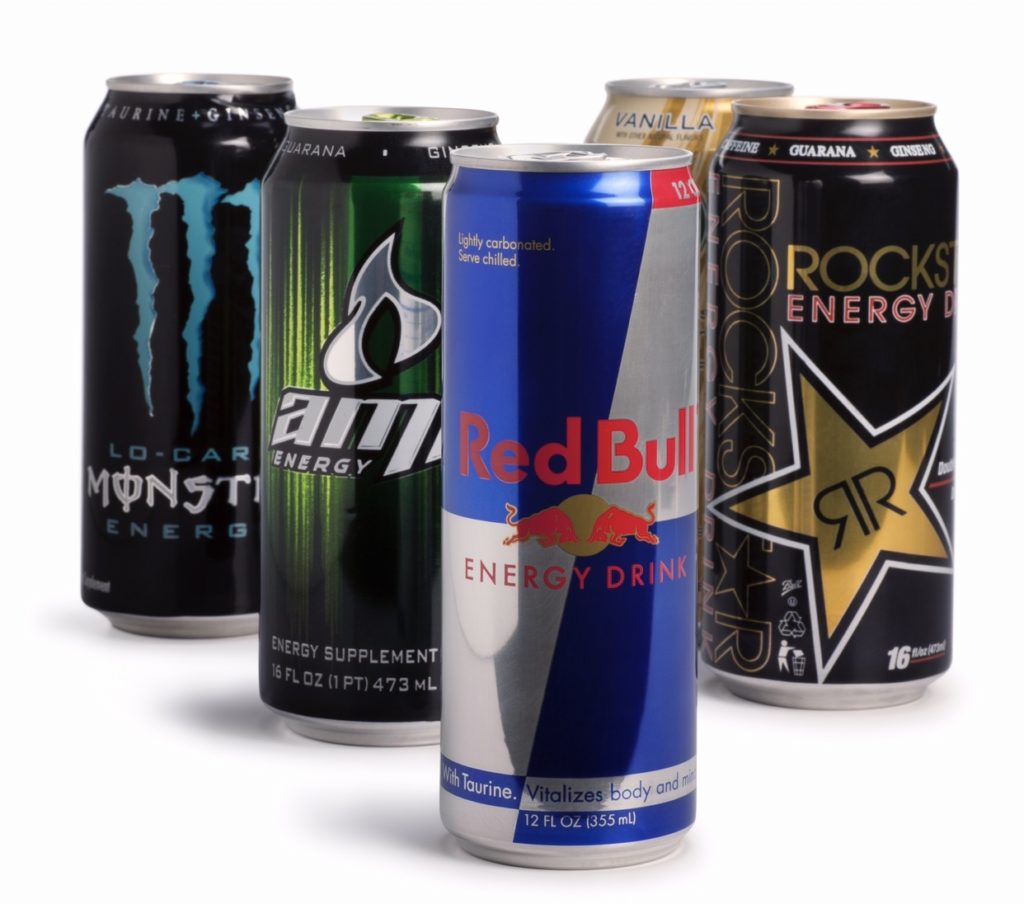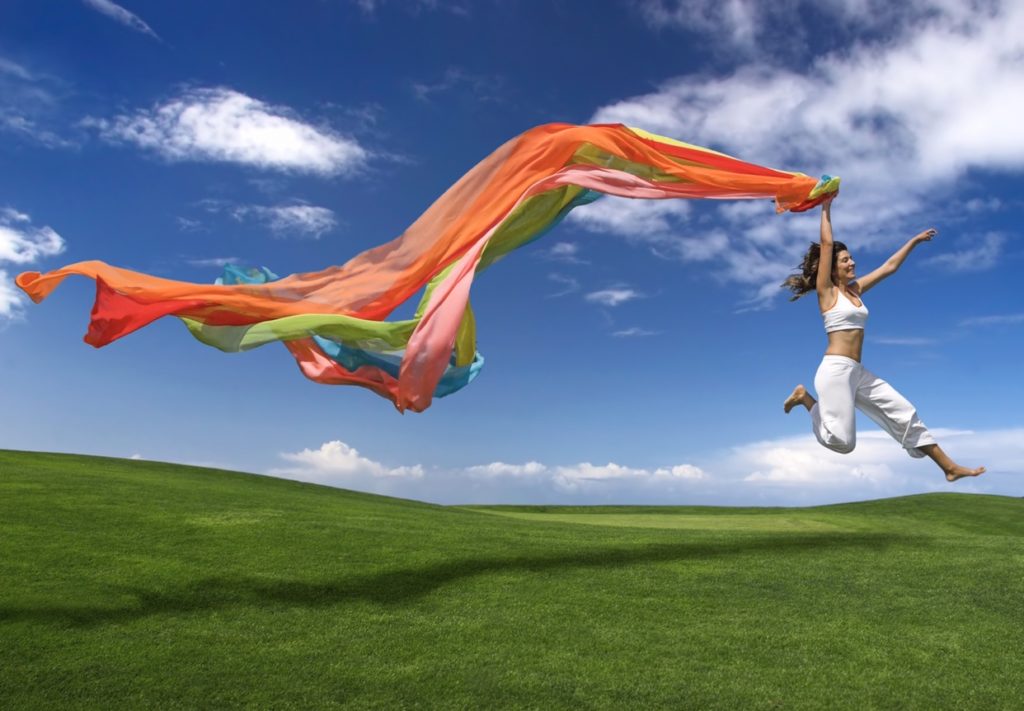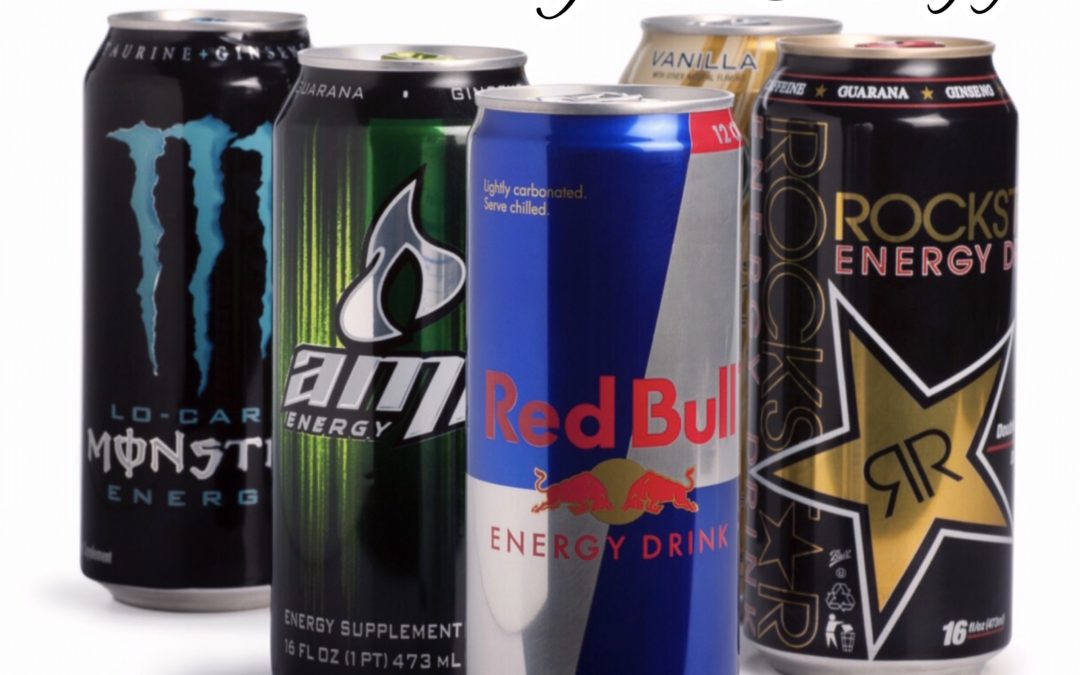Energy drinks are commonly consumed to help people feel more energized, but they could be stealing your energy. Learn how they work, and the downside to consuming them on a regular basis.
Disclosure: This post contains some affiliate links. If you click on the link and make a purchase, I may earn a commission. You can review my full disclosure policy here.

“I want more energy.” This is a statement I hear almost daily from clients, friends or family. We’re all looking for a way to feel more energized. It’s no wonder grabbing an “energy drink” sounds like the perfect solution. What’s more enticing than a quick fix of energy?
Energy drinks are hot, but before you slurp one down, let’s talk about what they are and whether they truly help you feel more energized.
What Are Energy Drinks?
Energy drinks are beverages that contain large amounts of caffeine, along with other ingredients like B vitamins, amino acids and herbal stimulants (such as guarana and ginseng.) Some energy drinks have sugar, while others do not.
When I first wrote this post years ago, most energy drinks contained around 80 mg of caffeine per serving. That’s the equivalent of a cup of coffee. Over the years, though, the amount of caffeine found in these beverages has exploded. Today, you can find energy drinks with over 300 mg of caffeine per serving. Most of them contain between 100-300 mg of caffeine.
Back then, it was also common for energy drinks to contain sugar. That’s changed a lot, too. As consumers became more conscious of their sugar intake, energy drink made without sugar became more mainstream. Today, it’s more common to find these drinks made with artificial sweeteners, than it is to find ones with sugar.
The herbal ingredients used to formulate energy drinks has changed, too. With so many different options available, it’s absolutely critical to read the label to understand exactly what you are drinking.

How Do Energy Drinks Provide Energy?
Scientifically speaking, energy is produced from the breakdown of macronutrients, most notably carbohydrates. Our brain and muscles use carbohydrates to help us focus and do work. Energy drinks that are formulated with sugar, which is a carbohydrate, technically supply an energy source. It’s the same energy supplies by other sugar-sweetened beverages, or other sugary food.
Energy drinks are not referring to sugar as a source of energy, though. They’re referring to the caffeine, herbal supplements and B-vitamins.
How To B-Vitamins Provide Energy?
B-vitamins are often referred to as energy vitamins because of their job in the body. They do not provide energy, but instead, they facilitate the work of cells and are necessary for energy production. To help you understand this, think of the macronutrients – carbohydrates, proteins and fats – as the fuel, and B-vitamins as the key needed to unlock and release them. All B-vitamins play a role in cellular metabolism and energy production, but B-12 in particular, is the found in many energy drinks.
Inadequate vitamin B-12 intake can result in feeling of tiredness and weakness, among other things. You can read more about the role and deficiency symptoms of Vitamin B-12 here.
The thing is, consuming large amount of B-12 not necessarily going to solve a B-12 deficiency, especially if the issue is an absorption problem. If you suspect you have a B-12 deficiency, you should talk to your doctor about it so that you can get proper treatment. Vitamin B-12 deficiency is a problem, and not something you should attempt to fix by consuming tons of energy drinks.
The rationale for including B vitamins in an energy drink is to support energy production. But, if you are getting adequate B vitamins through your diet, consuming extra won’t make you more energized. More than likely, it’s the caffeine and herbal supplements that are producing the ergogenic effects of the drink.
Caffeine Combined With Herbal Supplements
Caffeine alone affects individuals differently. Some people feel the effects after only a small amount, while others don’t seem to notice much effect at all. The problem is, combining the two can exacerbate the effects of the stimulants.
The uplifting effects of energy drinks are short lived and when they wear off you’ll feel anything but energized.
What Is The Downside Of Energy Drinks?
Drinking sugar and consuming caffeine may provide you with a temporary boost, but that’s not all they can give you. The combination of caffeine and herbal compounds can cause feelings of nervousness, irritability, increased heart rate and insomnia. One review study, looking at the effects of energy drinks on adolescents, gives more insight into the negative side effects they can have. This is why it’s important to understand the consequences of consuming such beverages.

How To Boost Energy Levels, Naturally
The good news is, you don’t need an energy drink to feel energized. If you feel like you do, assess the other aspects of your lifestyle to determine a cause. Maybe you are not drinking enough water. Maybe, it’s stress, or you just need more sleep. Perhaps the consumption of energy drinks is making it difficult for you to fall asleep, which in turn makes you feel tired the next day. I talk about this viscous cycle in my book, Fueling Young Athletes. You feel tired, so you drink an energy drink. That results in trouble sleeping, which leads to feelings of fatigue, which leads to you drinking another energy drink.
The truth is, energy drinks could be what’s zapping your energy.


 Hi, I’m Heather – a registered dietitian, busy mom, consultant, adventure junkie and travel addict who has mastered living healthy on the go. My blog is where I share simple recipes and healthy living tips to help and inspire others to live their best life.
Hi, I’m Heather – a registered dietitian, busy mom, consultant, adventure junkie and travel addict who has mastered living healthy on the go. My blog is where I share simple recipes and healthy living tips to help and inspire others to live their best life.